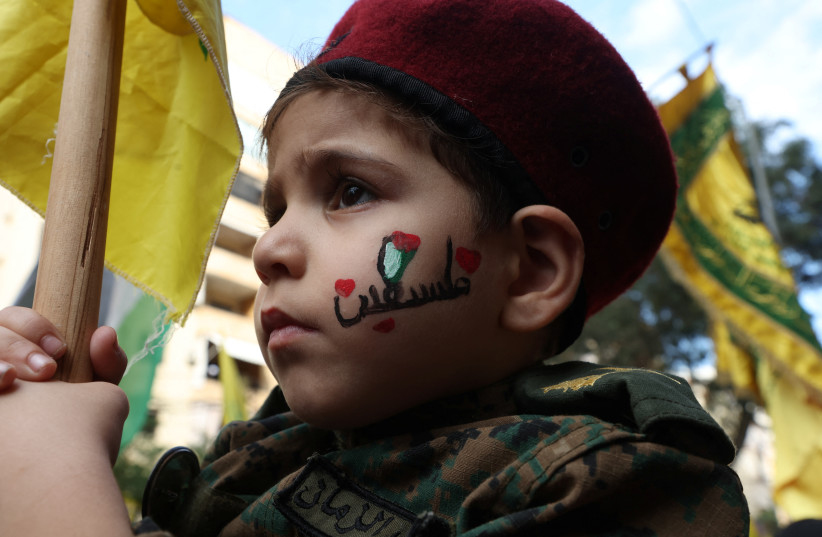Lebanon's Hezbollah warned its adversaries on Wednesday it was "thousands of times stronger" than before, as its fighters exchanged fire at the border with Israeli forces in violence fueled by the war between Hamas and Israel.
The United States has warned Iran, which backs Hezbollah and the Palestinian group Hamas, against getting involved in the crisis, and deployed two aircraft carriers which it says aim to deter any state or non-state actor seeking to escalate the war.
Hezbollah official Hashem Safieddine, in a speech to thousands of supporters, said US President Joe Biden, Israeli Prime Minister Benjamin Netanyahu and "malicious Europeans" should be careful.
"The response to the mistake you might make with our resistance will be resounding," he said.
"Because what we have is faith, and God is stronger than you, all your battleships, and all your weapons," he said, speaking at a rally called in response to a strike that killed hundreds of people at a Gaza hospital.

Hezbollah has repeatedly attacked Israel
Hezbollah and Israel have been trading fire at the frontier on an almost daily since Hamas attacked Israel on Oct. 7 and Israel responded with fierce air strikes on Gaza.
Hezbollah said it had attacked five locations on Wednesday including an Israeli barracks in Zar'it and a position across the border from Lebanon's Ras Naqoura area, using guided missiles in several of the strikes.
The Israeli army said it was responding to shots fired at its military posts in the area of Zar'it, and also responding after militants fired anti-tank missiles towards Israel's Kibbutz Manara and Rosh HaNikra near the border.
The army said it would "continue to strike terror targets belonging to the Hezbollah terrorist organization."
The fighting has been the deadliest at the border since Hezbollah and Israel went to war in 2006.
Hezbollah announced on Wednesday a fighter had died of wounds sustained on Tuesday, increasing to six the number of its fighters killed in Tuesday's violence.
Sources said last week Hezbollah's attacks so far had been contained, avoiding a major war. Hezbollah deputy leader Naim Qassem said on Oct. 13 the group would act when the time comes.
Israel's defense minister said on Oct. 15 that Israel had no interest in waging war on its northern front, and that if Hezbollah restrained itself then Israel would also keep the situation along the border as it is.
